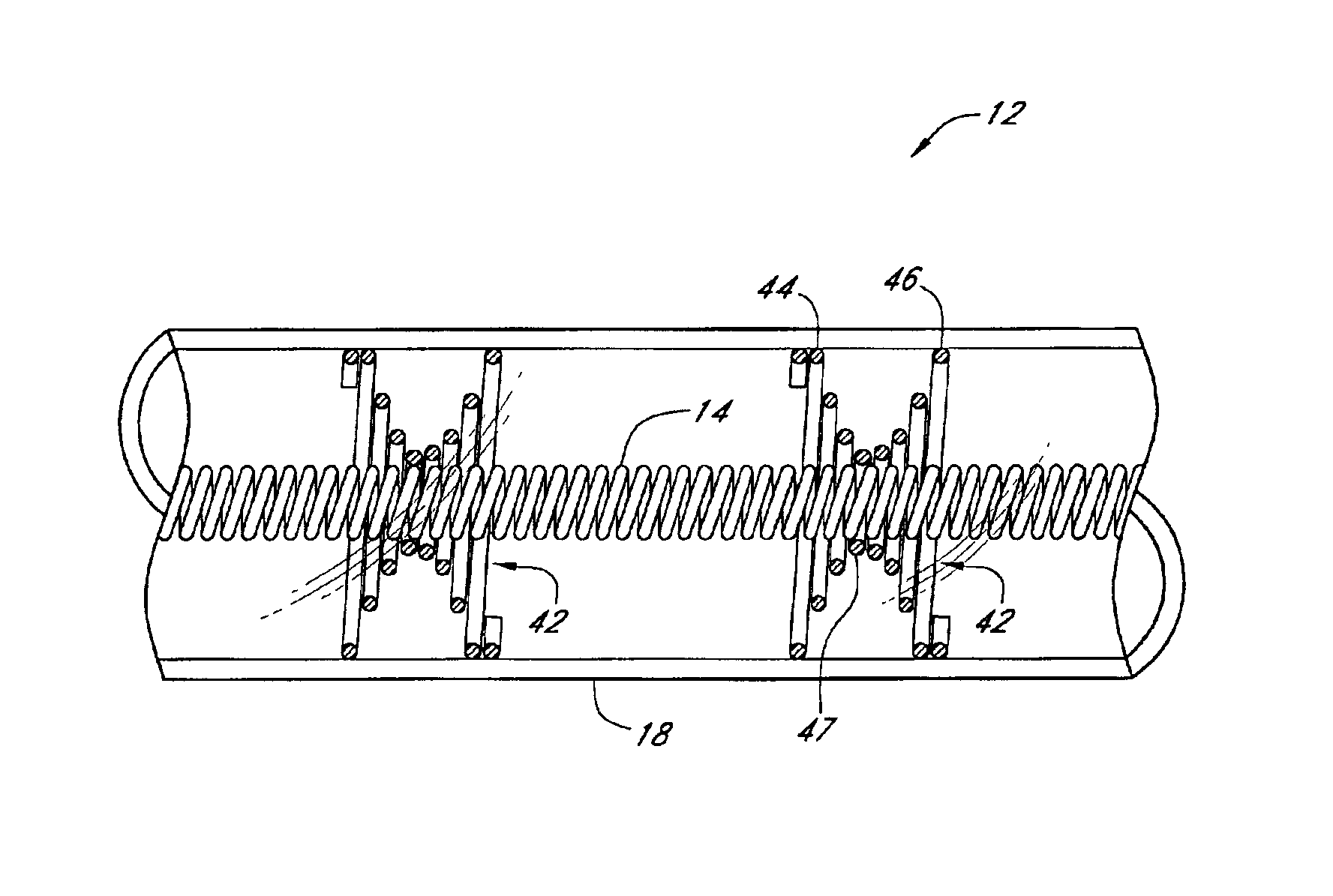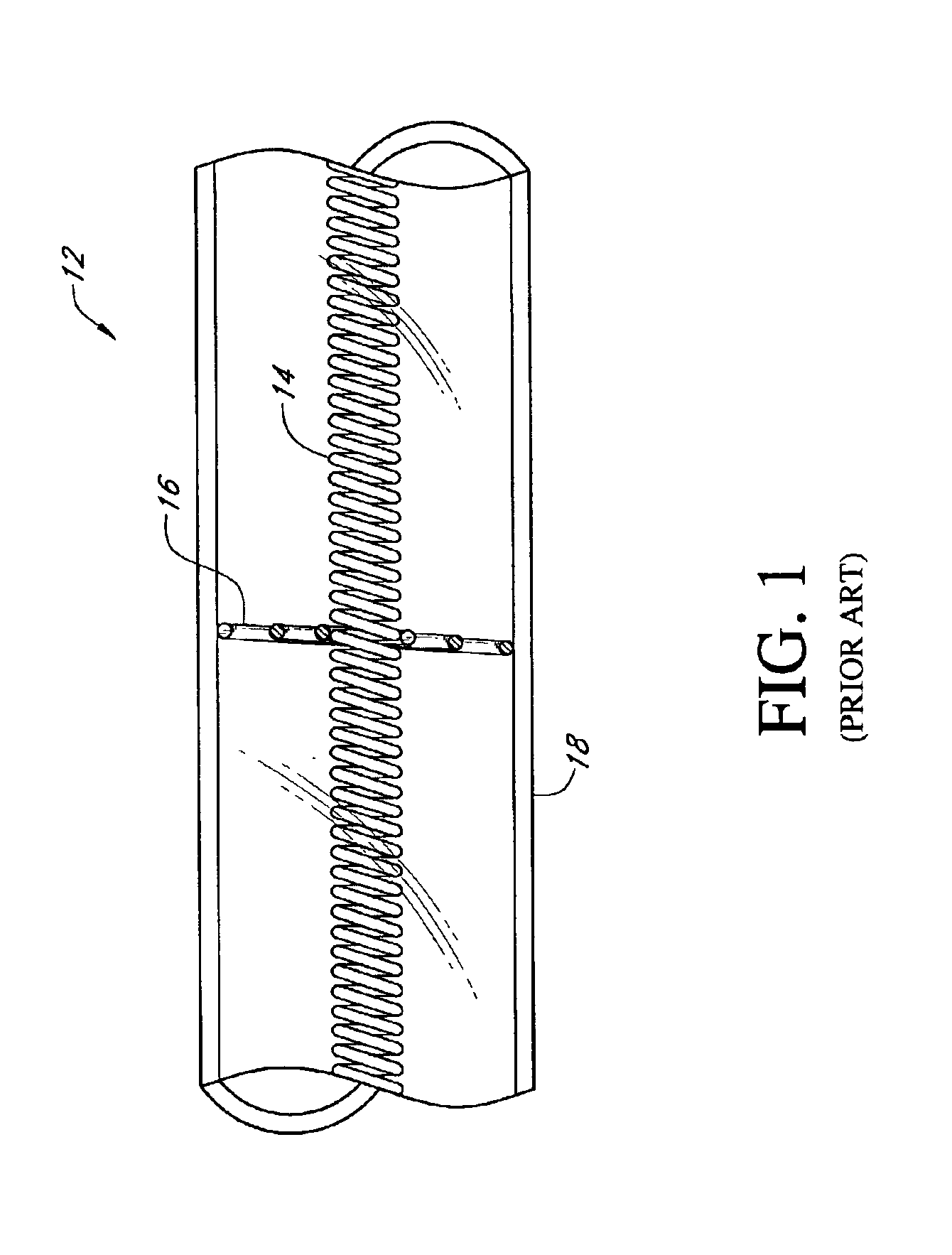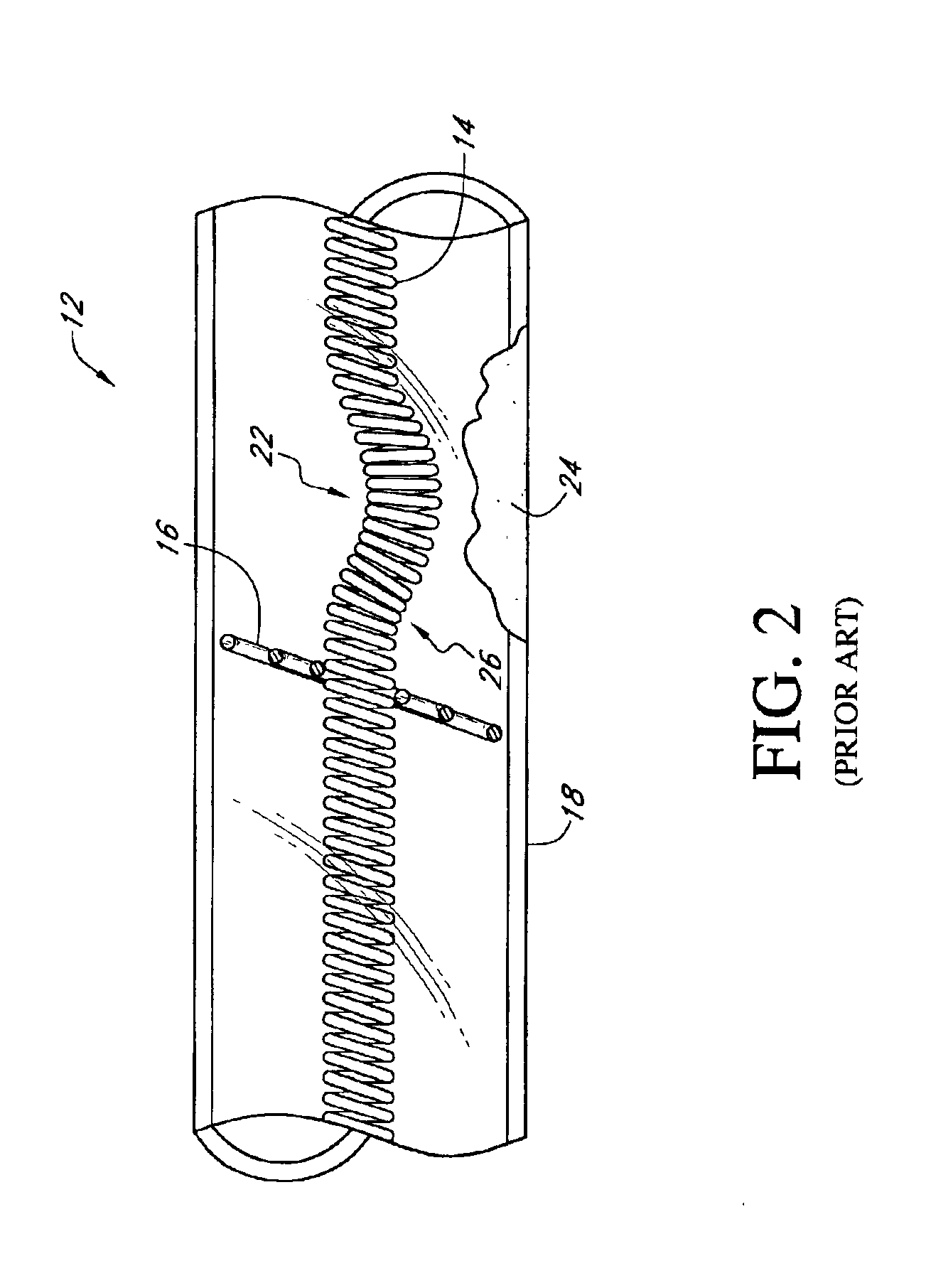Lamp filament design
a technology of lamp filaments and filaments, which is applied in the field of lamp filaments, can solve the problems of lamp failure, significant downtime for frequent replacement, and short lamp li
- Summary
- Abstract
- Description
- Claims
- Application Information
AI Technical Summary
Problems solved by technology
Method used
Image
Examples
Embodiment Construction
FIGS. 1-5 illustrate sections of lamps for purposes of describing problems and solutions with respect to filament support. FIGS. 6-8 illustrate lamps for purposes of describing problems and solutions with respect to filament expansion and contraction.
The material of a lamp filament used in radiant heating applications is typically tungsten wire, which does not maintain its stiffness at high temperatures. Conventionally, additional spiral support wires, each having a spiral or conical shape, are added around the filament periodically along the filament length to help support the filament, as shown in FIGS. 1-3.
FIG. 1 depicts a quartz lamp 12 as might be typically found in a reactor. The quartz lamp 12 comprises a filament 14, spiral filament support 16 and quartz sleeve 18. The support 16 contacts the filament 14 at an inner part of its spiral, and buttresses against the quartz sleeve 18 at an outer part of the spiral. Thus, the support 16 is intended to hold the filament 14 away fro...
PUM
| Property | Measurement | Unit |
|---|---|---|
| Temperature | aaaaa | aaaaa |
| Temperature | aaaaa | aaaaa |
| Temperature | aaaaa | aaaaa |
Abstract
Description
Claims
Application Information
 Login to View More
Login to View More - R&D
- Intellectual Property
- Life Sciences
- Materials
- Tech Scout
- Unparalleled Data Quality
- Higher Quality Content
- 60% Fewer Hallucinations
Browse by: Latest US Patents, China's latest patents, Technical Efficacy Thesaurus, Application Domain, Technology Topic, Popular Technical Reports.
© 2025 PatSnap. All rights reserved.Legal|Privacy policy|Modern Slavery Act Transparency Statement|Sitemap|About US| Contact US: help@patsnap.com



